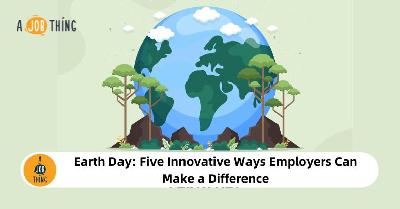
Top Talent, No Skill: Should You Hire Them?
Create Job Description Using AI
Write appealing job descriptions for any job opening to attract the most qualifield and suitable candidates. FOR FREE.
try now
Top talent without the right skills. This is one of the biggest problems employers are facing right now. There are candidates with all the right technical skills but lack the soft skills, and there are promising candidates that lack the technical skills.
According to SHRM’s Skills Gap 2019 report, 75% of Human Resource professionals who have problems in hiring say there are noticeable skill gaps in their candidate pool. More than 50% say the skill shortage has only gotten worse. These skill gaps exist across all fields, from hard labour to STEM.
Even newly graduated candidates don't have the skills the employers are looking for. According to a report by Bloomberg, 40% of organisations say recent graduates lack the "soft skills" they need to thrive. Among the skills are:
- Emotional intelligence
- Complex reasoning
- Negotiation and persuasion skills
Another 24% say the fresh graduates lack hard skills, including written communication skills and computer literacy. It appears that this issue will only get worse.
New research from Korn Ferry foretells that the global talent shortage is truly going to get worse, costing companies trillions of dollars in lost economic opportunity by 2030.
Create a continuous learning environment
In a world where "skills gap " is the standard, organisations need to realise that employees will no longer be ready to perform on day one. Instead, they need to find new ways to identify raw talent. After that, they need to create a "continuous learning" environment where new and existing staff can proactively learn new skills, and mentor the newer employees into evolving roles.
This learning-centric workplace seeks for a new way to search for talent, where recruiters focus more on potential. Now they need to widen their perspective and look beyond top universities to find talent from apprenticeship programs, community college and those who are self-taught.
In theory, the talent pool can be expanded significantly. But, the real issue is to figure out which talent in these new pools have what it takes to be successful, and possess the attitude, attributes, and ambition to learn on the job continuously.
Here are a few ways to find top talent.
- Support a continuous learning environment. When you're recruiting, talk about your commitment to learning. Let candidates know what kind of training they can expect, what long term development opportunities they will have, and what you will expect in terms of skill development to succeed on the job. This will help reinforce your employer brand to learning-focused candidates.
-
Look for evidence of lifelong learning. Look beyond talent's past job experiences to see what they've done on their own such as teaching themselves a programming language. These outside efforts suggest talent are willing to learn new skills and share their knowledge. This kind of talent will thrive in a continuous learning environment.
-
Use assessments to see their potential. Assessments give recruiters quick and concise insights into the skills and attribute a talent brings to the table. Specific features, such as adaptability, creativity, problem-solving ability, and motivation suggest a person will do well in a learning environment.
-
Talk about their learning process. In interviews, ask candidates to share a time they had to learn a new skill and how they went about it. Give them an unfamiliar workplace scenario and ask how they would figure out what to do. Look for clues in how they would learn and the resources they would use, as well as their enthusiasm in the process.
-
Ask what they know about your company. A lifelong learner will have done a little research on you and your business before coming to the interview. If they haven’t, that's a problem.
Filtering top talent from alternative sources can be difficult, but there is a lot of talent to be found when you look beyond the same handful of colleges and job boards. If you are willing to dig a little deeper, and judge talent on their ability to learn rather than what they’ve already accomplished, you can find amazing candidates who can become valuable additions to your team.
Related articles
How to Choose the Best Candidate? Resumes are not enough!
Forget CGPA, Here's What Matters For Tony Fernandes When it Comes to Hiring
LinkedIn Finds Women Apply to Fewer Jobs Than Men But Are More Likely to Get Hired






